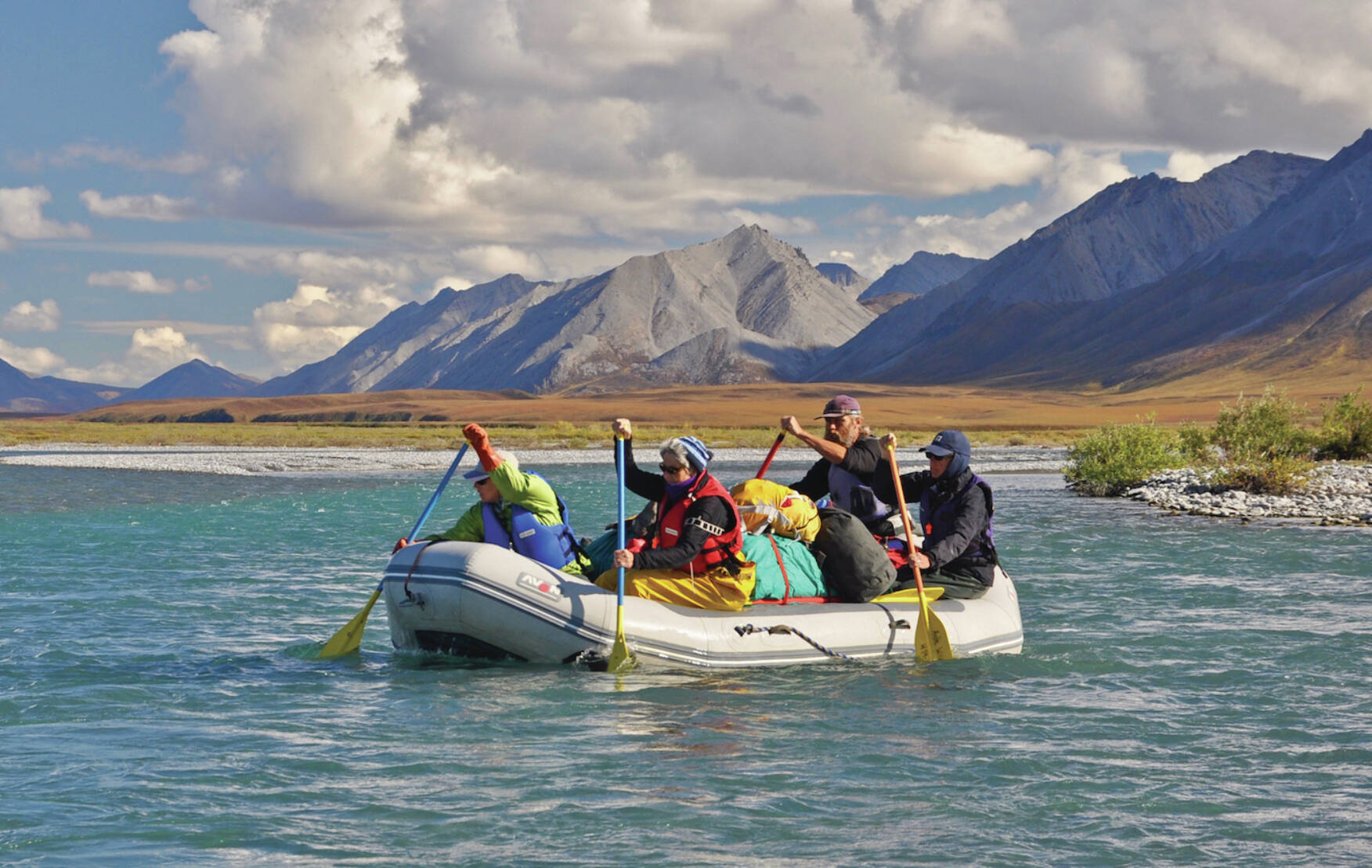Homer’s Pratt Museum is hosting “Portraying the Wide, Open Spaces” with longtime wilderness guide, anthropologist and author Michael Engelhard. Engelhard will be presenting his book “Arctic Traverse: A Thousand-Mile Summer of Trekking the Brooks Range” published in 2024 by Mountaineers Books in Seattle, and his newest book “What the River Knows: Essays from the Heart of Alaska.” The event will take place at the Pratt on Friday, June 7 from 4 to 6 p.m.
Homer artist Rika Mouw will also present some of her wilderness-centered artworks.
Engelhard shared some responses to questions provided by the Homer News as a preview for the event.
Homer News: Regarding “What the River Knows: Essays from the Heart of Alaska” are you referring to a particular river or “the river” as more of a synonym/figure of life, travel and narrative as a soul component of Alaska?
Engelhard: To both, actually. Of course, The River is one of the oldest, most potent, if a bit shopworn metaphor for a human life — as well as the flow of history. And it shares linearity, a point of origin and a destination with physical travels. It also is a structure important to writers, for essayists in particular. With its purling, meandering form, the essay takes its sweet time, exploring side channels to always progress toward an end the writer not always foresees.
In concrete terms, rivers, foremost the Colorado watershed — a sort of spiritual and physical home — have much to teach a river guide. “Reading water,” for example, meaning, finding the optimal run, a route of greatest momentum and least resistance. There’s a great saying about this: a good boatman knows when to act, when to react, and when to rest.
Homer News: What is your method for structuring an essay? Does it stem from a particular inspiration and grow from that? Or, is each essay structured in a different way depending on the creativity of composition?
Engelhard: Almost all stories that matter to me can be told in the form of a travelogue. And it’s one of the oldest genres. Look at The Odyssey. Sometimes, the seed is a news bit, or a single observation, or a place that particularly fascinates me — there are always stories waiting to be unearthed in such locations. Or it can be one of the inconsistencies of our modern lifestyle that awakens the Luddite in me. I find topics that I really get immersed in: falconry; polar bears; place names; subcultures. The structure of essays usually suggests itself in the writing.
Homer News: Is this book a more personal set of essays through time than previous publications? In the publication description it mentions your life in Fairbanks from Cheechako to Sourdough status.
Engelhard: Yeah, it’s like the Best of My Past Two Decades in Alaska. As personal as I ever get, from stories about dating to a battle with a neighborhood squirrel guiding my brother and his fiancé on their honeymoon. But it’s not more personal than many of my other books. I always try to blend the personal with the “educational” (for lack of a better term), and the ratio is usually around 50:50.
Homer News: Where are you from originally? How did you get to Alaska and the UAF campus?
Engelhard: Germany. I came to Fairbanks in 1989. Originally only as an exchange student for a year. But I loved the program and the town and ended up being a research assistant and teaching some and stayed. I was sold on UAF the day I saw a picture of the part of campus on West Ridge, which has a view of Denali on a clear day. And the romance of cabin life — too much Jack London as a teenager, you might say.
Homer News: How is this book different from previous publications? What new material will this book offer your readers?
Engelhard: This one and my new memoir “Arctic Traverse: A Thousand-Mile Summer of Trekking the Brooks Range” are my only two Alaska narrative nonfiction books. Between the two, I think there should be something there for anybody with a yen for the Alaska wilds.
Homer News: What’s the most important feature for readers to gain/ understand from “What the River Knows”? What can we take away from the material and use in our own lives in Alaska?
Engelhard: I can’t really single that out and distrust books that have a clear “message.” They’re often too pushy. While I have very strong convictions, which come through in the books, I’d like readers to take from them whatever they will. If there’s a core takeaway at all it’s that we must take care of these precious places. For our own sake and that of future generations and other life forms. And: as Alaskans we sometimes get spoiled and forget how all this wide, open space is no longer to be taken for granted on the Outside. So, let’s be grateful for it. But I’m preaching now…



